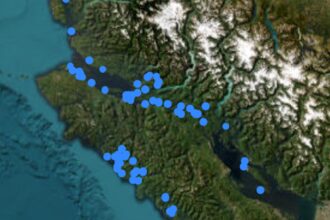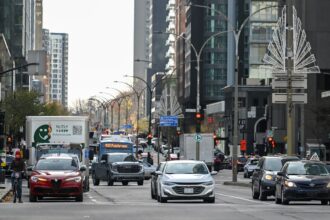A highly anticipated regional food waste collection program for the Central Okanagan has hit a significant roadblock after Kelowna city council voted to pull out of the initiative, creating ripple effects across neighboring communities.
In a contentious 5-4 vote during Monday’s council meeting, Kelowna officials opted to withdraw from the Regional District of Central Okanagan’s (RDCO) proposed curbside organic waste collection program, citing concerns over costs and implementation timelines. This decision effectively stalls a program that has been years in development and was positioned as a cornerstone environmental initiative for the region.
“The financial implications for Kelowna residents simply couldn’t be justified at this time,” explained Councillor Ron Cannan, who voted against participation. “With inflation pressuring household budgets, adding another utility fee without clear immediate benefits wasn’t something we could support.”
The decision caught many environmental advocates by surprise, including the RDCO board, which must now reassess the viability of implementing the program across remaining partner municipalities like West Kelowna, Lake Country, and Peachland. Initial projections suggested the program would divert approximately 10,000 tonnes of food waste from landfills annually while reducing greenhouse gas emissions equivalent to removing 900 vehicles from local roads.
Kelowna Mayor Tom Dyas, who supported joining the program, expressed disappointment following the vote. “While I respect council’s decision, this represents a missed opportunity to advance our climate action goals and extend the lifespan of our regional landfill,” Dyas remarked.
The decision creates logistical challenges for RDCO waste management officials, who had already begun preparing infrastructure and processing facilities to handle organic waste from across the region. Sources within the RDCO indicate the program’s economics relied heavily on Kelowna’s participation due to its population size, representing approximately 70% of the region’s residents.
Environmental organizations have criticized the decision as shortsighted. “Food waste in landfills generates methane, a greenhouse gas 25 times more potent than carbon dioxide,” noted Jennifer Marsh of the Okanagan Sustainability Alliance. “This delay puts us further behind other Canadian municipalities that have successfully implemented similar programs.”
Councillor Maxine DeHart, who voted in favor of the program, highlighted the economic benefits beyond environmental considerations. “The finished compost would have created a valuable resource for local agriculture and reduced the need for chemical fertilizers,” she explained. “We’re potentially losing both environmental and economic advantages.”
The RDCO board will meet next week to determine whether a scaled-back version of the program remains viable for participating communities or if the entire initiative needs to be redesigned. Officials from West Kelowna have already indicated they may reconsider their involvement given Kelowna’s withdrawal.
As municipalities across Canada face increasing pressure to reduce landfill usage and greenhouse gas emissions, this decision raises important questions about the balance between immediate financial concerns and long-term environmental planning. With provincial waste diversion targets looming, how will Kelowna address its organic waste challenge without this regional solution?










